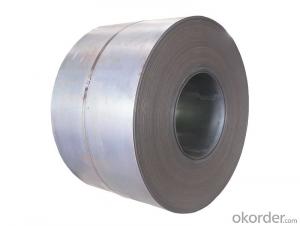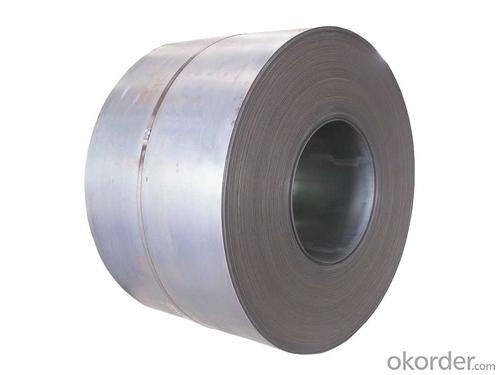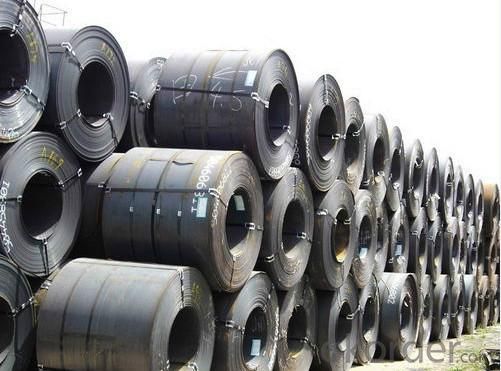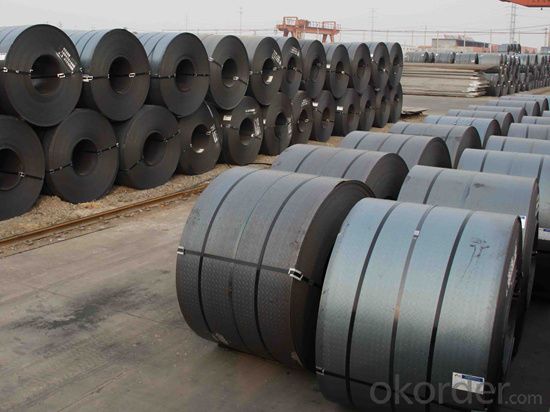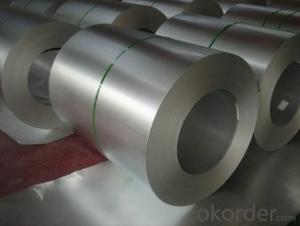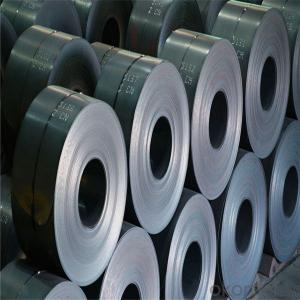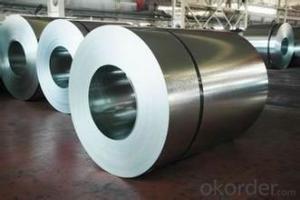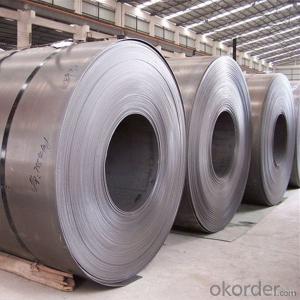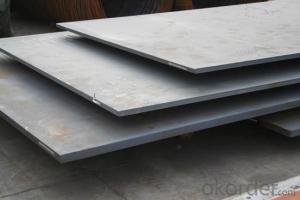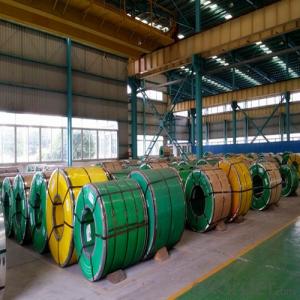Prime Quality Hot Rolled Steel Sheet in Coil
- Loading Port:
- Shanghai
- Payment Terms:
- TT OR LC
- Min Order Qty:
- 100 m.t.
- Supply Capability:
- 20000 m.t./month
OKorder Service Pledge
OKorder Financial Service
You Might Also Like
Product: | Hot Rolled Steel Coils/Sheets |
Material: | Q195,Q235,A36,SS400,S235JR,Q345,ST37-2, CCSB etc |
Standard : | JIS G3002 GB/T251B |
Technique: | hot rolled |
Thickness | 1.2mm to 200mm |
Tolerance of thickness: | :+/-0.03mm |
Width: | 750mm-2000mm |
Tolerance of width: | :+/-5.00mm (aiming to +/-2.00mm) |
Normal width: | 914mm, 1000mm, 1200mm, 1219mm, 1250mm,1500mm |
Length: | According to requirement |
Coil ID: | 508mm-610mm |
Coil Weight: | 10-25 Metric Tons |
Surface: | Black, Chromate, fingerprint resistant treatment, slight oiled or non-oiled, dry |
Port of Loading: | Tianjin/Shanghai port |
Packaging Details: | Standard export packing or according to the clients required |
Delivery Time | Within 30 days after received 30% deposit or workable L/C |
Payment Terms: | L/C,T/T |
- Q: i have a question on a test and the questions before it are about blast furnace, wrought iron and cast iron...question 16 is..What is Steel?i dont really get what im being asked.. there could be many answers, what answer are they looking for?
- steel is a mixture of two or more metal or a metal with non metal to obtain both properties of the indivudual components. carbon steel for example.
- Q: How is the thickness of a steel coil measured?
- The thickness of a steel coil is typically measured using a tool called a thickness gauge, which is capable of accurately determining the thickness of the steel through direct contact.
- Q: What is the difference between galvanized and galvalume steel coils?
- Galvanized steel coils are coated with a layer of zinc, which provides protection against corrosion. On the other hand, galvalume steel coils are coated with a combination of zinc and aluminum, offering enhanced corrosion resistance and better heat reflectivity. Additionally, galvalume steel coils have a longer lifespan and superior performance in harsh environments compared to galvanized steel coils.
- Q: How are steel coils used in the production of electrical wiring?
- Steel coils are used in the production of electrical wiring as a core material for the conductors. The steel coils are typically shaped into a cylindrical form and coated with an insulating material. This helps in providing structural support to the wiring and also enhances its conductivity and durability.
- Q: How are steel coils used in the production of power generation equipment?
- Steel coils are an essential component in the production of power generation equipment due to their strength, durability, and versatility. These coils are typically made from high-quality steel and are widely used in various applications within the energy sector. One of the primary uses of steel coils in power generation equipment is in the construction of generators. Steel coils are used to create the stator and rotor cores, which are crucial parts of the generator. These cores are responsible for generating the magnetic field necessary for converting mechanical energy into electrical energy. The steel coils provide the necessary support and stability to ensure efficient and reliable power generation. Additionally, steel coils are used in the manufacturing of transformers, which play a critical role in power distribution. Transformers are responsible for stepping up or stepping down the voltage levels to facilitate the transmission of electricity over long distances. Steel coils are used to create the primary and secondary windings of the transformer, enabling the efficient transfer of electrical energy. Another application of steel coils in power generation equipment is in the production of turbines. Turbines are used in various types of power plants, such as hydroelectric, thermal, and nuclear power plants, to convert the kinetic energy of a fluid or steam into mechanical energy. Steel coils are used in the construction of turbine casings, blades, and other components, ensuring the necessary strength and reliability to withstand high temperatures and pressures. Furthermore, steel coils are used in the production of boilers, which are crucial in thermal power plants. Boilers are responsible for converting water into steam, which is then used to drive a turbine. Steel coils are used in the fabrication of boiler tubes, where the steam is generated, due to their excellent heat resistance and strength. In summary, steel coils are an integral part of the production of power generation equipment. They are used in the construction of generators, transformers, turbines, and boilers, providing the necessary strength, durability, and thermal resistance required for efficient and reliable power generation.
- Q: How are steel coils inspected for quality assurance?
- Steel coils are inspected for quality assurance through a rigorous process that involves various tests and checks. Firstly, visual inspection is conducted to look for any surface defects such as scratches, dents, or rust. This ensures that the coils are in good condition and free from any obvious flaws. Next, dimensional inspection is performed to verify the dimensions and tolerances of the coils. This involves measuring the width, thickness, and length of the coils to ensure they meet the specified requirements. Any deviations from the standard dimensions are noted and addressed. Additionally, mechanical testing is carried out to assess the strength and durability of the steel coils. This includes conducting tensile tests to measure the strength and elasticity of the steel, as well as impact tests to evaluate its ability to withstand sudden loads or shocks. Furthermore, chemical analysis is conducted to determine the composition and purity of the steel. This involves taking samples from the coils and analyzing them in a laboratory to check for the presence of any impurities or elements that may affect the quality of the steel. To ensure the coils meet specific industry standards, non-destructive testing methods such as ultrasonic testing or magnetic particle inspection may be employed. These techniques allow for the detection of internal defects or irregularities that may not be visible to the naked eye. In addition to these tests, the coils may undergo surface treatment inspections, such as galvanization or coating checks, to ensure the protective layers are applied correctly and meet the required specifications. Overall, steel coil inspection for quality assurance involves a combination of visual, dimensional, mechanical, chemical, and non-destructive testing methods. These comprehensive inspections help to ensure that the steel coils meet the necessary quality standards and are suitable for their intended applications.
- Q: What are the common coil thickness tolerances?
- The common coil thickness tolerances can vary depending on the specific industry and application. However, typical tolerances for coil thickness range from +/- 0.001 inches to +/- 0.005 inches.
- Q: Can anyone tell me what that means. I have seen it on knife blades an such. I am assuming it's a formula for the strength of the metal. who does that scale work, and please keep it simple.
- The number just indicates which class of steel alloy it belongs. Yours happens to be a 400 series and happens to have no Nickel in it (440 Steel) and a higher amount of carbon (Nickel is very common in steel) When I say alloy, I'm referring to the different chemical formulas and processing of steel which vary for different uses like industrial use, medical use or decorative use. Think of the different alloys like the types of soft drinks out there. Coke, Pepsi and Dr. Pepper. They all have very similar chemical formulas; yet differ with their secret ingredients which is apparent in the taste.
- Q: How are steel coils used in the manufacturing of automotive exhaust systems?
- Steel coils are used in the manufacturing of automotive exhaust systems as they provide the necessary strength and durability required for this critical component. These coils are typically shaped and formed into various parts such as pipes, mufflers, and catalytic converters, which are then welded together to create the exhaust system. The steel coils also undergo additional processes like coating or galvanizing to enhance corrosion resistance, ensuring the longevity of the exhaust system.
- Q: How do steel coils contribute to earthquake resistance in structures?
- Steel coils contribute to earthquake resistance in structures by providing strength and flexibility. When used as reinforcement in concrete structures, steel coils help to distribute and dissipate the energy generated during an earthquake. This helps to prevent the excessive deformation or collapse of the structure, enhancing its overall seismic performance. Steel coils also improve the ductility of the structure, allowing it to withstand the dynamic forces and vibrations caused by seismic activity.
Send your message to us
Prime Quality Hot Rolled Steel Sheet in Coil
- Loading Port:
- Shanghai
- Payment Terms:
- TT OR LC
- Min Order Qty:
- 100 m.t.
- Supply Capability:
- 20000 m.t./month
OKorder Service Pledge
OKorder Financial Service
Similar products
Hot products
Hot Searches
Related keywords
